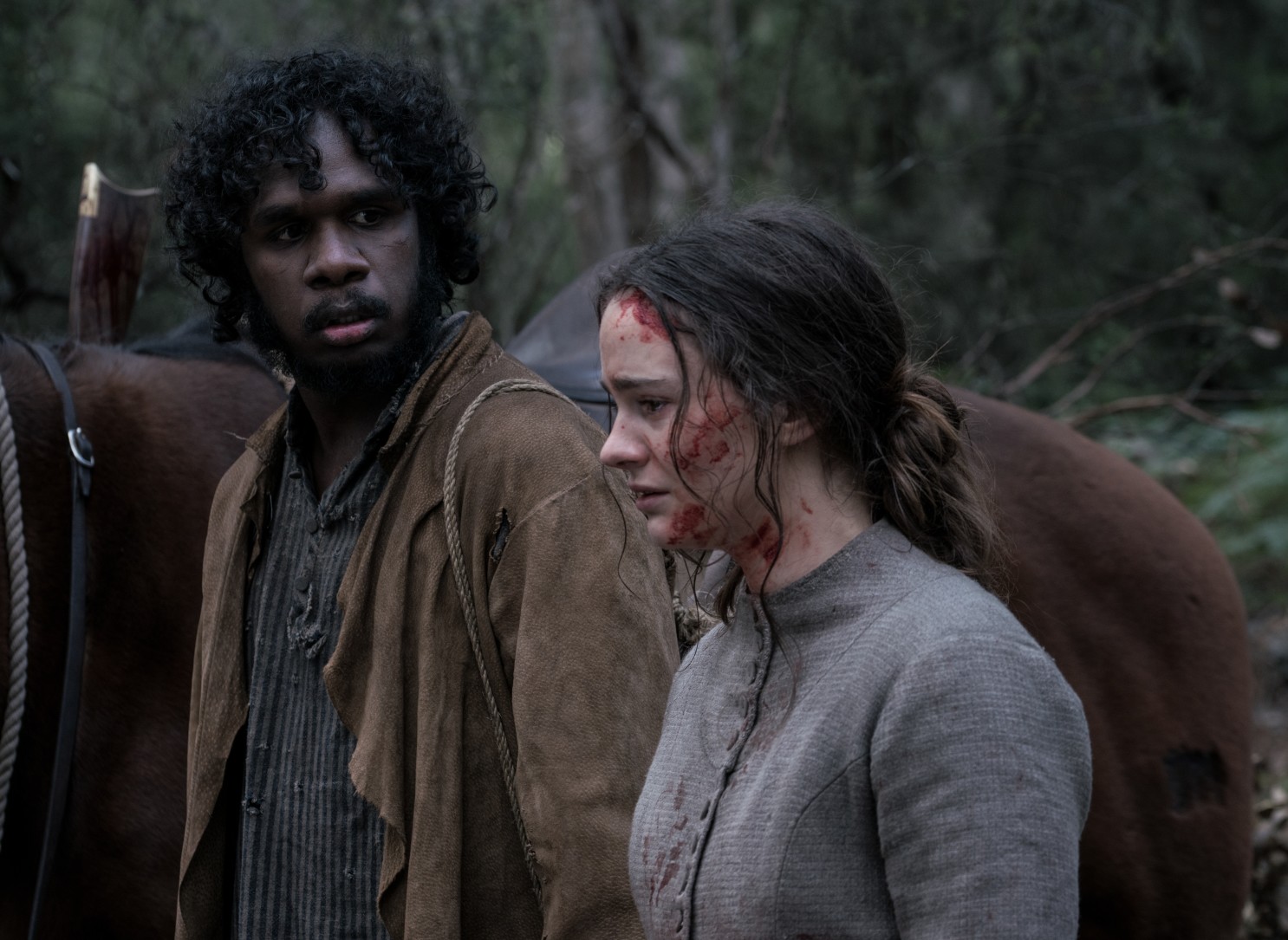The Nightingale
The blackness of night and the human soul creep in on the characters and the audience as we journey through the interior of wild colonial Tasmania. Director Jennifer Kent’s first major film was a horror movie: The Babadook (2014). It’s easy to see the horror influences from that first film in her second: The Nightingale (2019). However, where her previous film dealt with horror in the generic sense, The Nightingale deals with horror within a very real context.
Kent confronts the horrors of humanity, colonialism and our collective history, it’s a lot to take in. Despite this, the film manages to capture the audience in a dark trance. Wild 19th century Tasmania is a setting foreign to film screens, and with only the barest of introductions, the movie throws the audience into the forbidding wilderness. This is not a passive viewing experience like you’d get with a big blockbuster created to be passively enjoyed. The Nightingale is a confrontational film, a brutal film and a beautiful one. It demands your attention.
The film confronts the horrors of colonialism through the story of an Irish convict, Clare, working as a servant for a British Army unit stationed on the Australian island in the early 1800s. She is abused and practically held captive by the British commander and eventually finds herself on a trek across the inhospitable island to seek revenge. Clare is guided by a Tasmanian, Billy, who is wary of any interaction and whose presence in the film enriches it beyond the typical revenge narrative.
Be warned: the film shows everything in detail, including rape and murder. But it does not shock for entertainment's sake. The violence is shown for a greater purpose, however, it is almost too much to bear at some points. There’s a fine line that Kent tries to balance between confronting the audience with more than they are comfortable with and not showing them more than they can handle. While this reviewer found it a tough but necessary component of the narrative, some may find it’s too much.
The audience wanders the wilderness with Clare in search of justice. As they wander, we learn more about Billy’s suffering at the hands of the British invaders. The connection between Claire and Billy holds the film together and prevents it from descending into total darkness. Billy works as an effective foil for Clare and a complex character in his own right that inspires empathy. Billy and Clare then contrast sharply with the British soldiers and their own twisted journey through the wilderness. Everyone in the film is plagued by a sense of injustice, even the villains. Everyone feels they’ve been wronged at some point, everyone can feel frustrated at the system around them. The greater point is perhaps that not all grievances are equal. While Claire has suffered greatly, the film demonstrates that her problems are nothing compared to the plight of the Tasmanian natives.
The film’s message feels incredibly relevant despite the incredibly foreign setting. The scars of colonialism are still in our society, with many still taking advantage of the remnants of its structures. It’s not hard to think about the treatment of Native Americans by the United States while watching this film. The film is a great showcase of the continuous repression and denial of justice towards those who have no power. It asks us to consider what kind of justice could ever match the crimes committed?
When considering the brutality of the imagery and the exploration of contemporary issues, one must wonder what Kent’s ultimate intentions were. To shed light? To spur action? To shame? The film is too earnest to provide any overt and potentially didactic answers, and therefore it ends on a quiet note. While I would’ve preferred a more forceful statement at the end, the film still provides much to think about.
At its core, the film is an immensely engaging and unique revenge adventure. Add gorgeous cinematography that frames the wild Tasmanian wilderness along with the inventive sound design that immerses the audience in the narrative, and Kent proves her technical mastery of filmmaking. This is a real showcase of her abilities as a filmmaker and her unique voice. This is a film of such beauty and humanity that it is impossible to forget. It is one of the best films of the year and certainly one of the most important of this decade.

